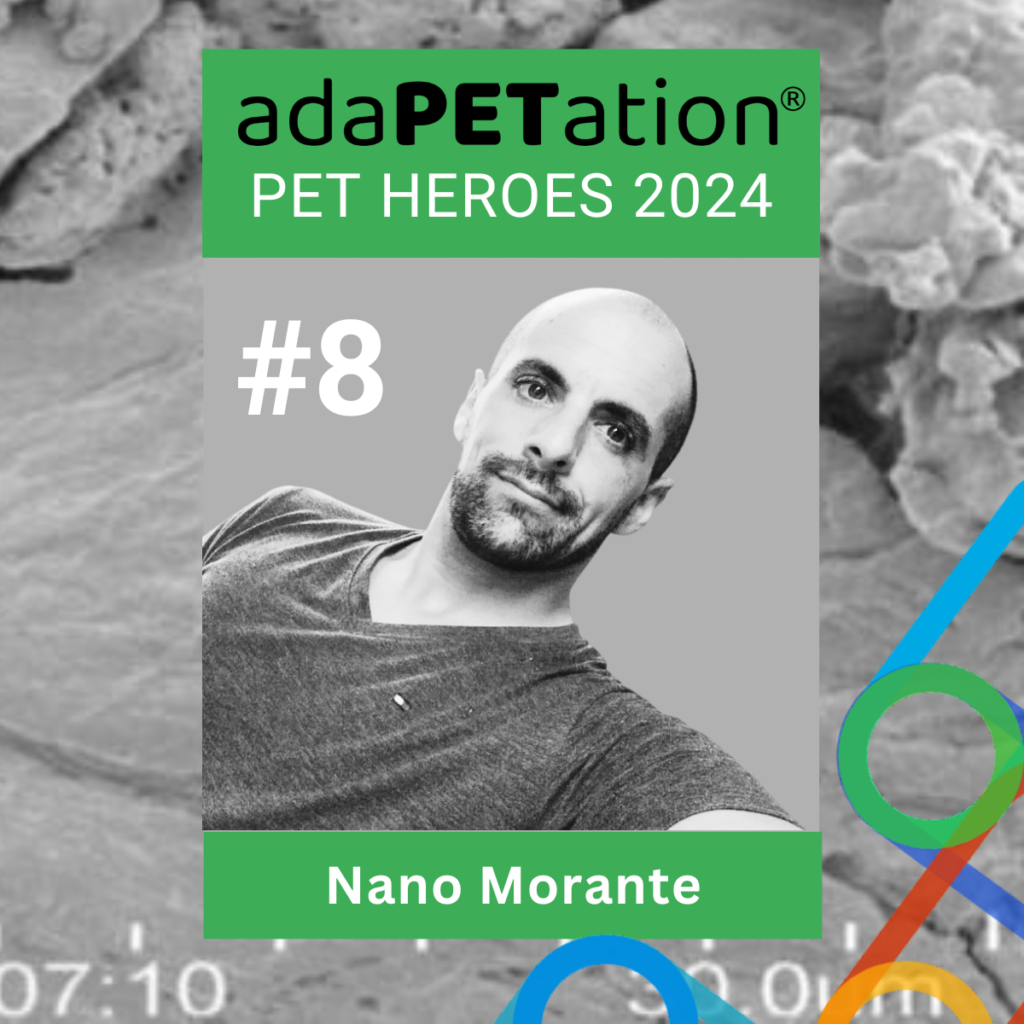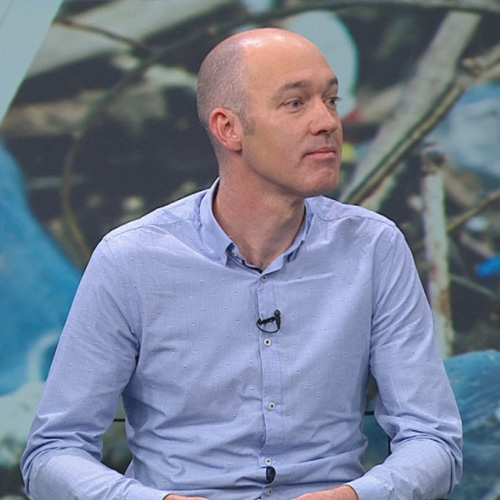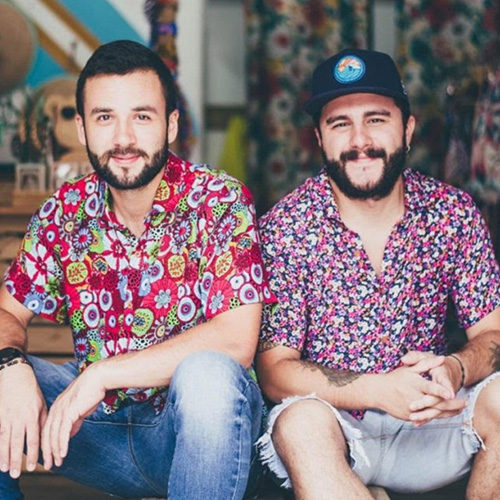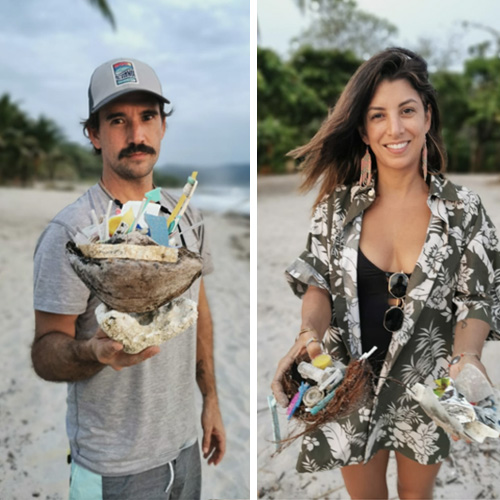
Nano Morante’s social enterprise, Plastic People is reshaping the narrative on plastic in Southeast Asia by putting design and community at the heart of his solution to the waste problem in Vietnam.

Our eighth finalist for PET Heroes 2024 is Nano Morante, the founder of Plastic People in Vietnam. Plastic People is reshaping the narrative on plastic waste in South East Asia, standing out not only as a business but also as an innovation hub in sustainable waste management that is a testament to Morante’s vision and determination.
Born from Morante’s lifelong aspiration to make a meaningful impact in the world, Plastic People has grown from a humble idea into a pioneering force in bridging the gap between waste collection and recycling. In a world battling the ever-growing challenges of overflowing landfills and plastic-laden oceans, Plastic People has emerged to offer hope through innovation.
Plastic People’s model emphasizes not only the recycling of neglected plastic types but also the empowerment of local communities. By working closely with local garbage collectors and informal sector collectors, often overlooked in the broader economic system, Nano ensures they are an integral and fairly compensated part of the recycling process.
Beyond the equitable model, Plastic People showcases the immense power of local validation – transforming collected waste into valuable materials within Vietnam. This approach not only keeps the economic benefits within the local community but also reduces the environmental footprint associated with the international transportation of waste.
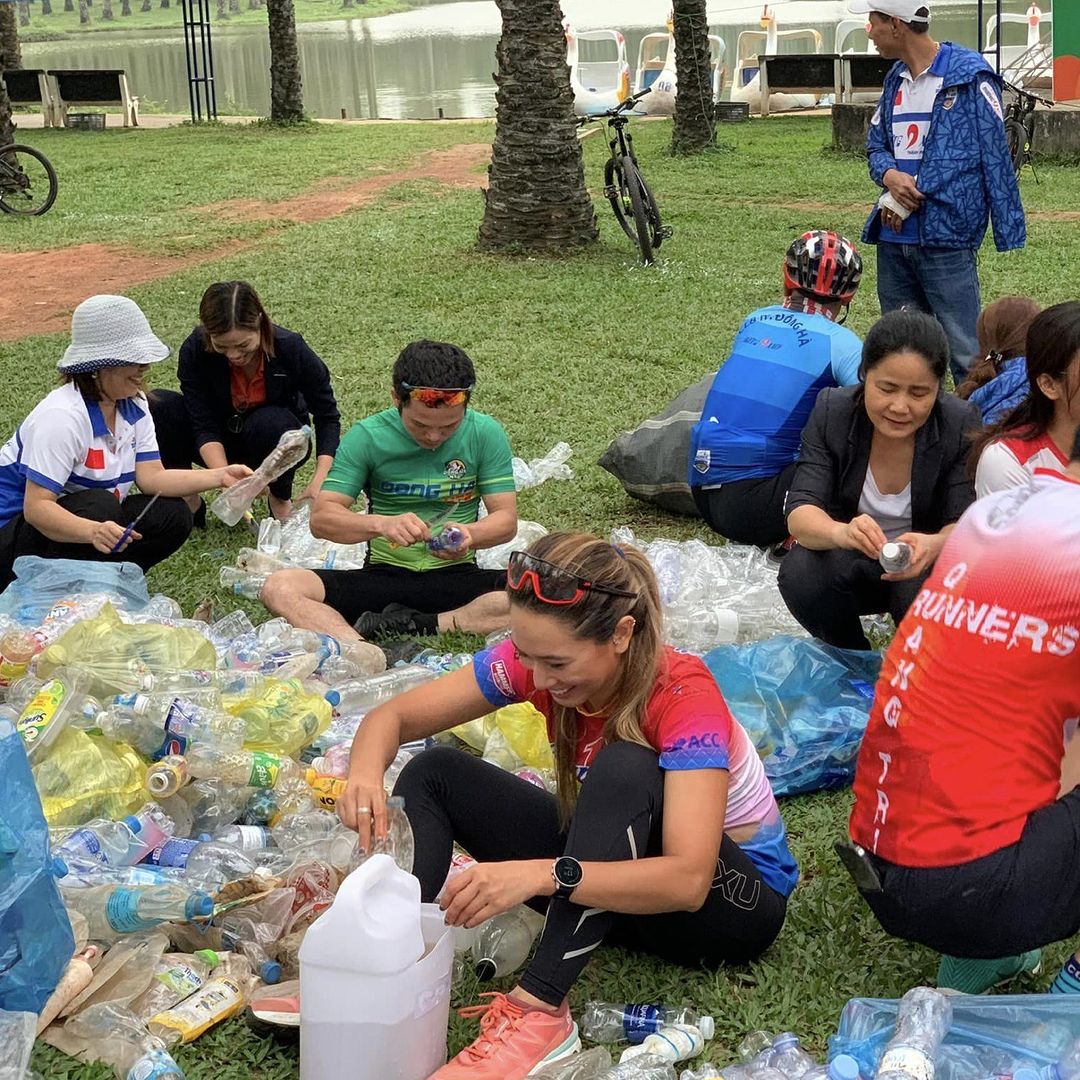
Five minutes with Nano Morante:
adaPETation®: Can you share the lightbulb moment that led to the birth of Plastic People?
Nano Morante: “Well, I think that it was a little bit of many things that happened. I always wanted to change the world since I was a kid… I decided to leave Vietnam… but before I left, I wanted to do a documentary about plastic waste… I met my partner… we started working together… and it made sense to open something together.”

adaPETation®: Nano, tell us about the initial steps in creating Plastic People. How did you begin this venture?
Nano Morante: “We started doing little pieces of plastic, showing them around the city… they were uneven, totally random. Some people liked them… but we didn’t have a recipe, we just had a lot of goodwill.”
adaPETation®: What was your vision when starting Plastic People?
Nano Morante: “We wanted to do something more specific, use the plastic that nobody uses… to do something bigger, right? And that’s why we aim to these two industries – construction and furniture – because they need a lot of materials… we need to transform a lot of garbage into our boards so they can be used.”
adaPETation®: How do you source the materials for Plastic People?
Nano Morante: “We’re using the network of garbage pickers, we’re using the network of the informal sector of collectors… We teach them about the plastic, and we buy 100% of the plastic… if you give it to me dirty and messy, I pay you a little. If you give me something sorted, I will pay you more.”

adaPETation®: How do you transform plastic waste into usable materials?
Nano Morante: “Our focus is on low-grade plastics that are usually not recycled. We aim at mixed plastics like meal boxes, potato chip bags, and other non-recyclable materials, turning them into high-quality products.”
adaPETation®: What kind of products do you create with recycled plastic?
Nano Morante: “We do panels like boards, different thicknesses… We work with architects and we work with designers and we work with the furniture manufacturers to start replacing other materials… instead of using an untouched resource from Earth… we’re using the garbage that is already out there.”
adaPETation®: What challenges did you face in scaling up Plastic People?
Nano Morante: “People are a main challenge in so many ways… stereotypes around recycling… people that come to me and say, you’re gonna run out of business really soon, everybody’s going green… But it’s like, look around, my friend.”
adaPETation®: Can you explain how Plastic People involves the community in its operations?
Nano Morante: “We work with local garbage collectors, teaching them to sort and clean plastic. We pay them based on the quality of their sorting. This way, we ensure community involvement and provide them with a sustainable livelihood.”
adaPETation®: What were some unexpected challenges you faced in developing Plastic People?
Nano Morante: “One major challenge was meeting the quality requirements of industries like construction and furniture. We had to continuously improve our products to meet their standards.”
adaPETation®: How did you deal with the setback of the fire at your facility?
Nano Morante: “The fire was a huge blow, especially after we lost a grant due to it. But it also served as a reset, a reminder of our connection with the community and the impact we can make.”
adaPETation®: How do you maintain optimism and hope in your work?
Nano Morante: “I discovered that your mood, your energy is a decision. You can change that tiredness and being lethargic and just boom, you stand up and push forward… It’s a… This tough thing or whatever is what I chose. It’s not… that is happening to me. It’s what I chose, so…”
adaPETation®: How do you stay motivated and continue to drive positive change?
Nano Morante: “The belief that we can change the world one step at a time keeps me going. Seeing the impact we make on people’s lives, giving them hope and opportunity, is incredibly fulfilling.”
adaPETation®: Finally, what’s your vision for the future of Plastic People?
Nano Morante: “I envision Plastic People not just as a recycling company but as a movement. We aim to inspire and empower more people to see the value in waste, to understand that their actions can make a difference.”
As a leader in Vietnam’s recycling sector, Plastic People is redefining what it means to be environmentally responsible while maintaining economic viability. By turning plastic waste into an opportunity for sustainable development, Morante is not just recycling materials; he and his team of 29 are fostering a culture of hope and proving that with innovation and the right mindset, it’s possible to close the loop on plastic waste.
JOIN THE MOVEMENT
If you are looking for more information on the equitable approach of Nano Morante and Plastic People listen to the full interview on the adaPETation® podcast or sign up to receive more information about Plastic People on its website.
Share it
The Other PET Heroes & Useful Links
THE HISTORY OF PLASTIC
Throughout the history of plastic, PET has been crucial in keeping food fresh with lightweight and durable packaging solutions that have helped reduce food waste for almost a century. Learn all about the invention of plastic and the important role it has played feeding people and saving the lives of humans and elephants in the adaPETation® timeline of the history of plastic.
